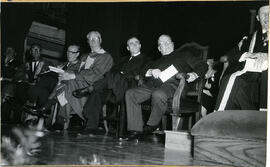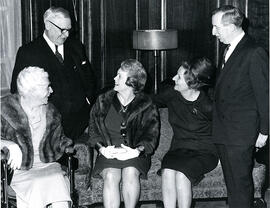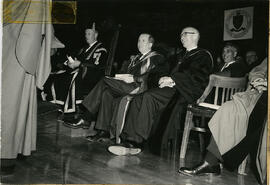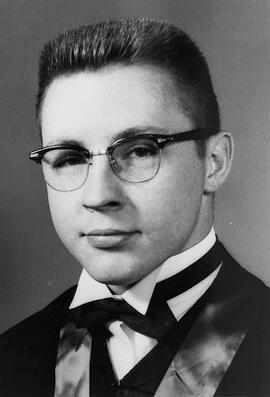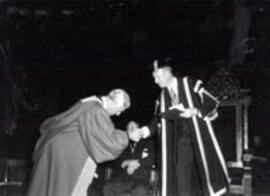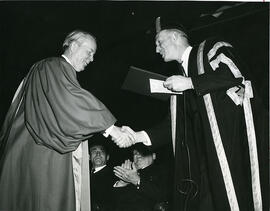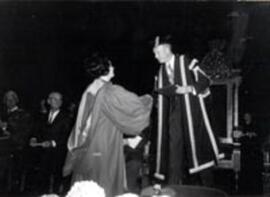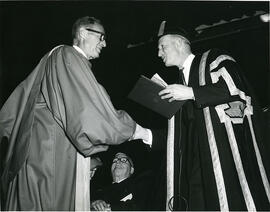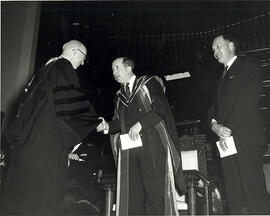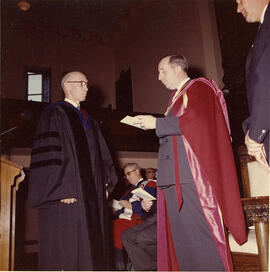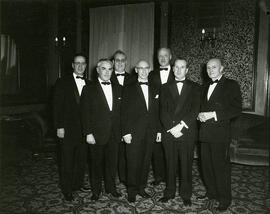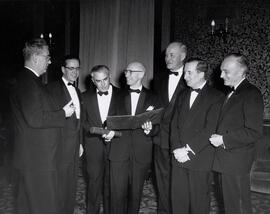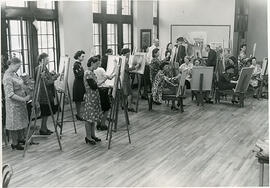E.M. (Ted) Culliton, University Chancellor, making presentation of an honourary Doctor of Laws degree to Lester B. Pearson, Prime Minister of Canada, during the first graduation ceremony of the Regina Campus, University of Saskatchewan,
Bio/Historical Note: Lester Bowles (Mike) Pearson was a Canadian scholar, statesman, soldier, prime minister and diplomat who won the Nobel Peace Prize in 1957 for organizing the United Nations Emergency Force to resolve the Suez Canal Crisis. Pearson was born in 1897 in Newtonbrook in the township of York, Ontario. He was the 14th prime minister of Canada from 1963 to 1968, as the head of two back-to-back Liberal minority governments following elections in 1963 and 1965. During Pearson's time as prime minister, his Liberal minority governments introduced universal health care, the Canada Student Loan Program, the Canada Pension Plan, the Order of Canada, and the Maple Leaf flag. His Liberal government also unified Canada's armed forces. Pearson convened the Royal Commission on Bilingualism and Biculturalism, and he kept Canada out of the Vietnam War. In 1967 his government passed Bill C-168, which de facto abolished capital punishment in Canada by restricting it to a few capital offences for which it was never used, and which themselves were abolished in 1976. With these accomplishments, together with his groundbreaking work at the United Nations and in international diplomacy, which included his role in ending the Suez Crisis, Pearson is generally considered among the most influential Canadians of the 20th century and is ranked among the greatest Canadian prime ministers. Pearson died in Ottawa in 1972.

